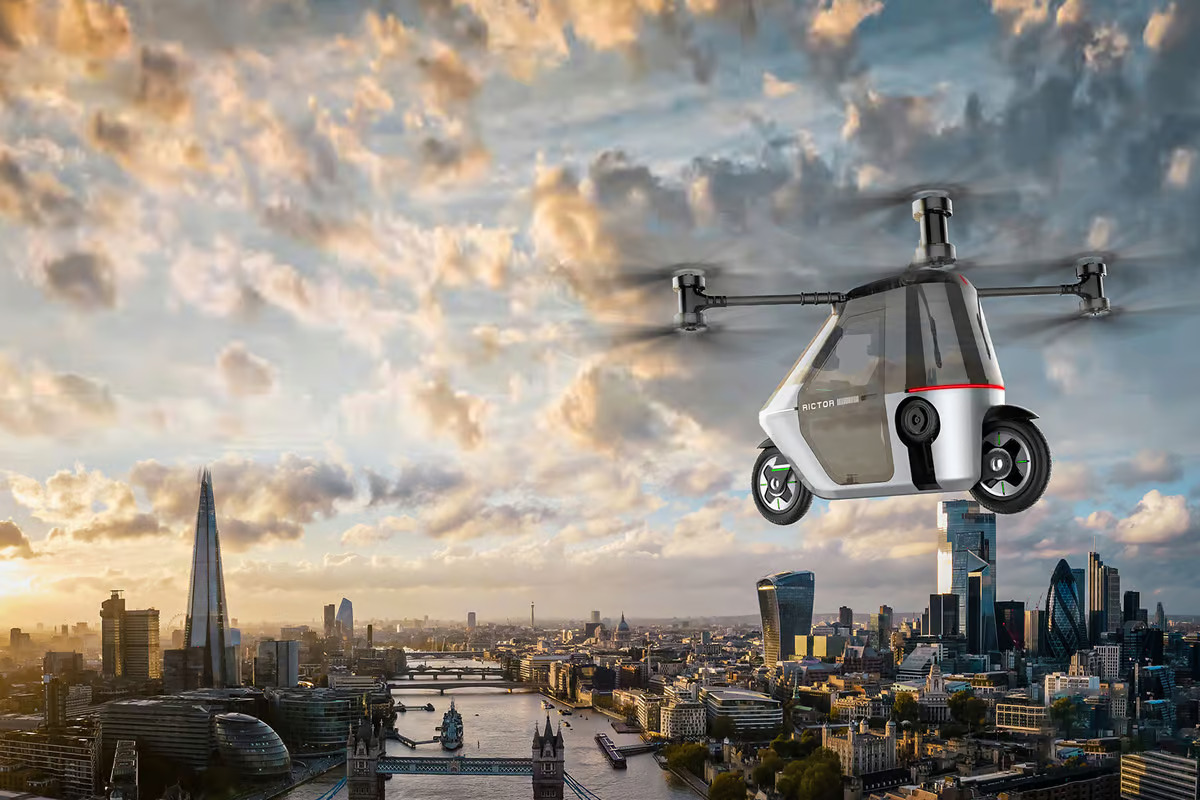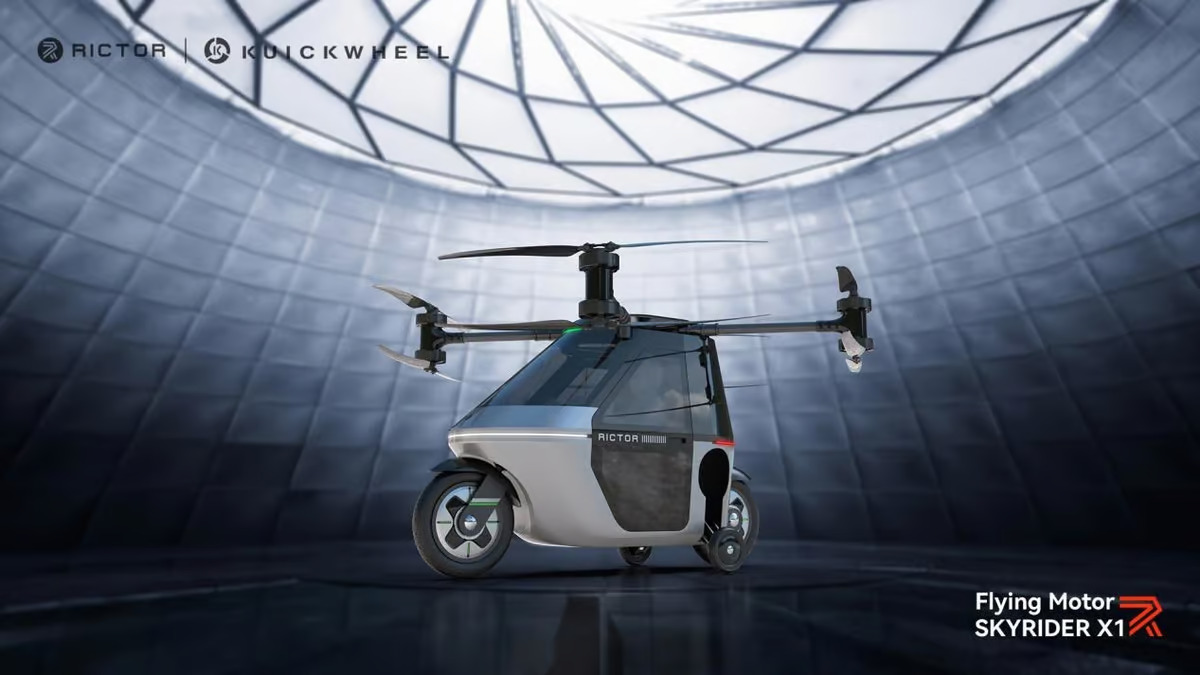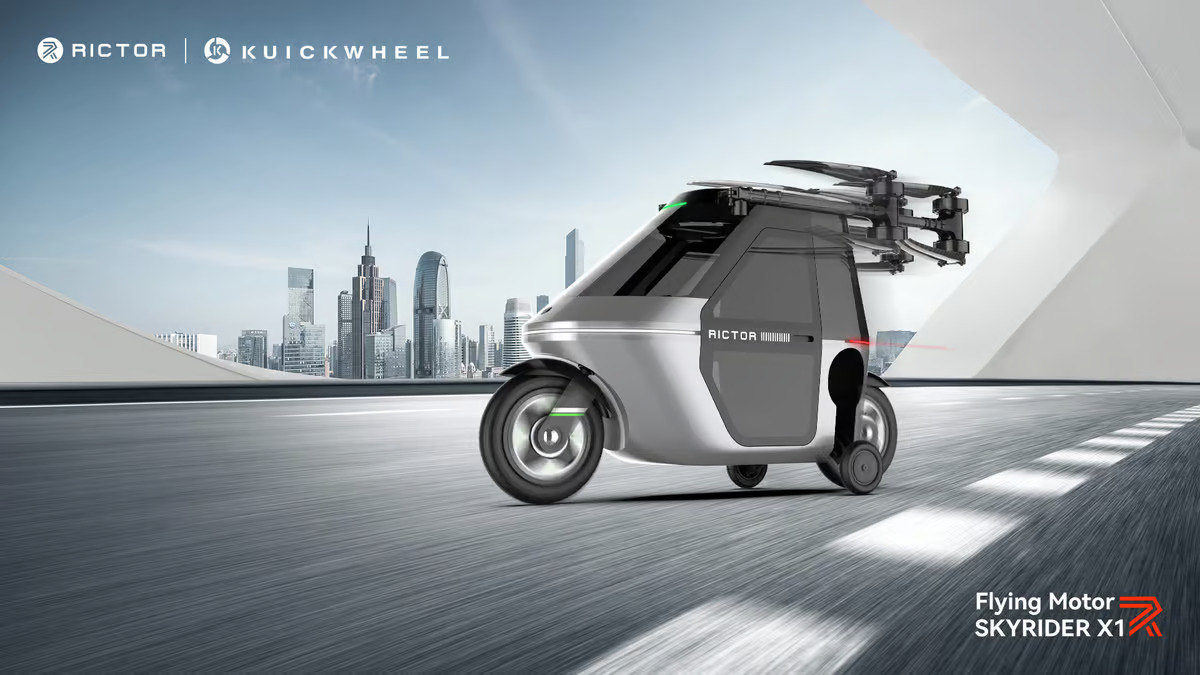 The Skyrider X1 features a four-axis, eight-propeller system. Rictor –
The Skyrider X1 features a four-axis, eight-propeller system. Rictor –
The vehicle is built by Rictor, which is a sub-brand of Chinese company Kuickwheel – which focuses on eco-friendly and energy-efficient mobility options, and which apparently doesn’t understand what ‘amphibious’ means. Up until now, Rictor had just one other product in its line-up, the K1 e-bike. Going from that to a flying motorcycle is quite the leap.
The Skyrider X1 is the most recent innovation in the eVTOL space, an area that has rapidly gained attention in the mobility industry owing to the rising need for a variety of travel options. On the ground, it could be street-legal as an electric moped, stabilized by what appear to be automated outrigger training wheels.
If the traffic gets too much and you feel like taking off, all you need to do is fold out the four arms, power up the eight coaxial propellers, set your destination, hit go and enjoy the sensation of flight. Carbon fiber composite and aviation-grade aluminum materials promise to keep the bike light enough to fly, and durable enough to handle road stresses.

As for the numbers, Rictor quotes a maximum flight speed of 62 mph (100 km/h). Flight duration depends on the battery, which depends on the model. The base X1 SL, which comes with a 10.5-kWh battery, gives you an alleged 25 minutes in the air – which seems like an optimistic figure for a machine that needs to constantly generate its own life.
The more expensive X1 SX comes with a larger 21-kWh battery, and Rictor claims a fight endurance of 40 minutes. The press materials also mention “triple-redundant flight control systems, ensuring safe operation even if an engine fails.” Also present is an integrated emergency parachute.

Automatic route planning is included to help you identify the best flight paths based on your destination, while “real-time weather and environmental adaptability” automatically adjusts the altitude, speed, and flight direction for more efficient travel.
The vehicle also boasts automated take-off and landing functionality, which means you simply have to set your destination and the vehicle will do the rest. There are, however, manual control options in the shape of a joystick for those who prefer hands-on operation.

There are rumors that the Skyrider might hit the markets next year, with a reported price tag of US$60,000.
As already mentioned, a flying motorcycle seems like a pretty big leap for a company with only an ebike to show for itself. Such things as working prototypes, flight tests and certifications are notably missing from the press materials so perhaps it’s best to take this development with a pinch of salt until more solid information is made available.
Of course, it’s not the first “flying motorcycle” we’ve seen. Mayman Aerospace is making impressive progress on its jet turbine-powered Speeder, but it seems more likely to become a military vehicle than anything consumers can buy. The late Larry Neal had a Super Sky Cycle road-registered and on sale as early as 2007. Lazareth’s extraordinary transforming jet bike made it as far as tethered flight, and Dezso Molnar has flown street-legal gyrocycles in between his many other projects.
We’d love to see Rictor make a go of the Skyrider, but getting a product to market in this space is no walk in the park, so we won’t be holding our breath.
Source: Rictor View gallery – 4 images
–























